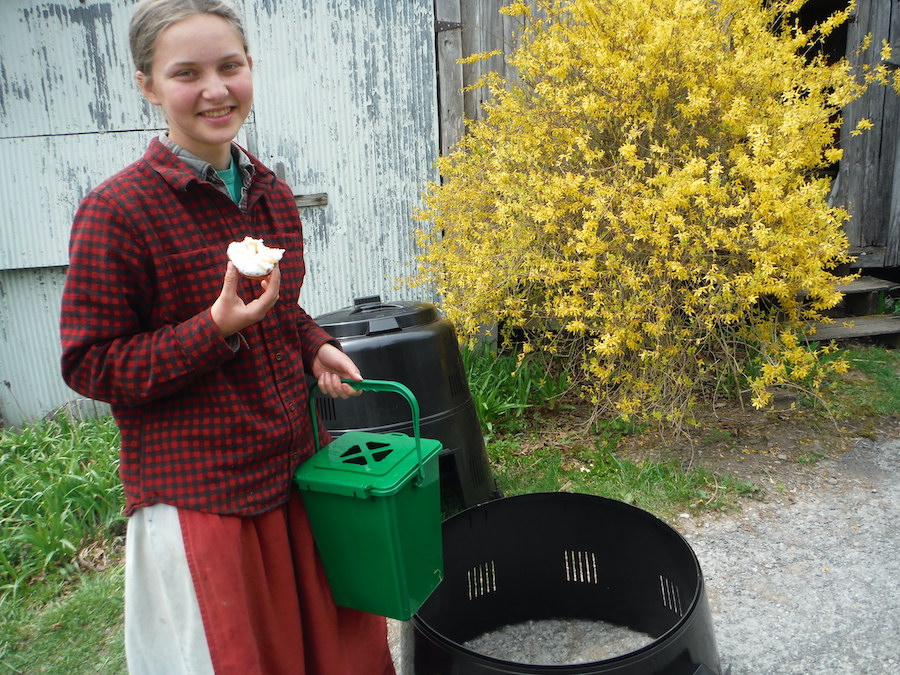
We’ve reached the halfway point! To commemorate this momentous occasion I reached out to some of the households with the greatest and least amount of total diverted food scraps. How do factors like household size or dietary preference influence the amount of scraps headed to the compost each week? Well, here’s the inside scoop!
One of our most productive households, diverting a total of 56.7 lbs so far, explained a suite of factors. For one thing, this family has four homeschooled children, so nearly all their meals are eaten at home. Also, this family hosts weekly meals for extended family, so they’re frequently feeding more than just those under their own roof. Finally, the matriarch of this family reports that they tend to eat tons of fruits and veggies with cores and rinds, like apples and melons, and these heavier scraps add up.
Another big producer (51.5 lb food scraps so far) expressed surprise, noting that there are only three members in the household. But all three are vegetarian, meaning lots of fruit and vegetable scraps. Additionally, one family member works from home so just like our homeschooling family, perhaps more meals than average are home-based.
On the other end of the spectrum our lowest scrap producers have diversions hovering around two pounds of food scraps per household so far. Some of these households point out that composting is not the only way they deal with their food scraps. Some use vegetable scraps to make stocks and broths. Some have chickens and even rabbits or guinea pigs, so the scraps get shared with the feathered and furry friends rather than with the decomposers. Some just one or two members, which would obviously have an effect on total scrap weights. Others have lifestyles that keep them on the go and so eat fewer meals at home.
While it’s important for our wallets (and the planet) to prevent edible food loss, most of us end up sending some stuff to the composter.. That’s better than the landfill alternative! Whatever the story behind your food diversion you’re doing the right thing. A large number may signify a large household (or even our participant church) and lots of fruits and veggies. A small number might mean a small household whose members take seriously their membership in the “Clean Plate Club.” We are all doing our part; that’s the most important thing of all.
Want to share your story? Got a veggie stock recipe to share? Spill the beans (or at least the orange peels) by joining with our project facebook page HERE.
